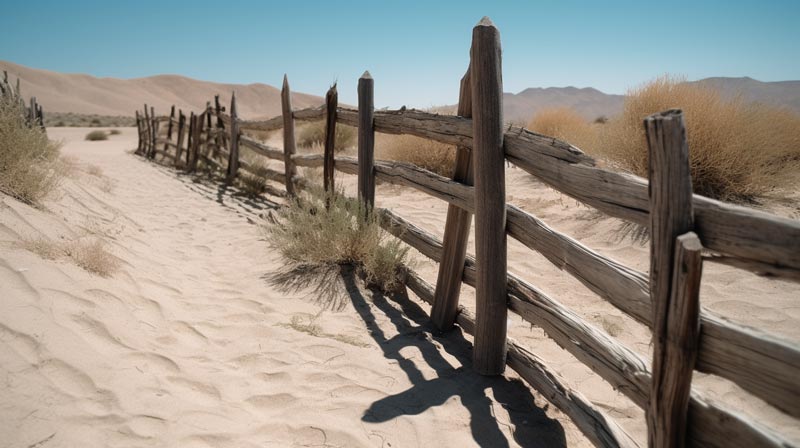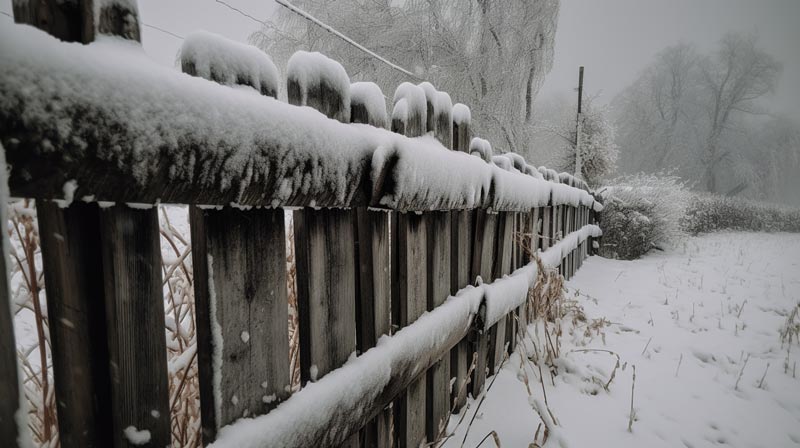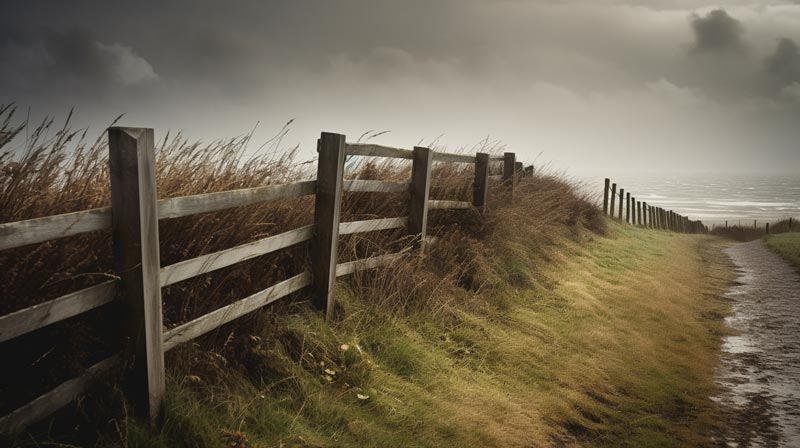- Free Estimates

Are you planning on fence installation in Newtown, CT? Your region’s climate is among the most important factors when choosing a fence. Choosing the right type of fence that can withstand the elements can save you money and hassle in the long run. This blog post will discuss the different types of fencing materials and their suitability for different climates. We will also explore the climate considerations when choosing a fence and provide tips on choosing the right fence for your region.
When it comes to fence installation in Newtown, CT, you have a variety of fencing materials to choose from. Each material has its own set of pros and cons, and its suitability for different climates can vary. Let’s take a closer look at some of the most common fencing materials.
Wood fencing is a classic choice for many homeowners, but it may not be the best option for all climates. One of the biggest advantages of wood fencing is its aesthetic appeal. It can add warmth and character to your property, and there are many styles and finishes. However, wood fencing is not as durable as some other materials, and it can be prone to rot, decay, and insect infestations. In humid and wet climates, wood fencing may require more maintenance and repairs.
Vinyl fencing is a popular choice for homeowners who want a low-maintenance option. It is durable, weather-resistant, and comes in a variety of colors and styles. Vinyl fencing is a great option for regions with high humidity or heavy precipitation, as it will not rot or rust. However, in extremely hot climates, vinyl fencing may become brittle and crack over time.
Metal fencing is a durable and long-lasting option for many climates. It is resistant to rot, decay, and insect infestations and can withstand harsh weather conditions. Metal fencing comes in a variety of materials, including aluminum, steel, and wrought iron. Aluminum fencing is a lightweight and affordable option, while steel and wrought iron are more durable and can provide added security. However, metal fencing may not be the best option for regions with heavy precipitation, as it can rust over time.
Composite fencing is a newer option that combines the best features of wood and vinyl. It is made from a mixture of wood fibers and plastic, which gives it the look and feel of wood without maintenance. Composite fencing is weather-resistant and comes in a variety of colors and styles. It is a great option for regions with high humidity or heavy precipitation, as it will not rot or warp. However, composite fencing may not be as durable as other materials and may fade or discolor over time.

When choosing a fence for your region, it’s important to consider the climate and weather patterns. Here are some climate considerations to keep in mind:
Temperature can have a significant impact on your fence’s durability. In hot and dry climates, your fence may be exposed to UV rays that can cause it to fade or crack over time. In cold and wet climates, your fence may be exposed to freeze-thaw cycles that can cause it to warp or crack. Consider a fence material that can withstand extreme temperatures and fluctuations.
Humidity can also impact the durability of your fence. In dry climates, wood fencing may become brittle and warp over time. In wet climates, wood fencing may require more maintenance and repairs to prevent rot and decay. Vinyl and composite fencing are great options for humid climates, as they are weather-resistant and low-maintenance.
Wind can be a significant factor in the durability of your fence. In windy climates, your fence may be exposed to strong gusts that can cause it to sway or even collapse. Consider a sturdy fence material that can withstand high winds, such as metal or composite fencing.
Precipitation, whether heavy or light, can impact the durability of your fence. In regions with heavy precipitation, such as Newtown, CT, your fence may be exposed to excess moisture that can cause it to rot or decay. Consider a weather-resistant fence material, such as vinyl or composite fencing. Ensure your fence installation in Newtown, CT, has proper drainage to prevent water buildup.
In regions with heavy snowfall, choosing a fence material that can withstand the weight of snow is important. Vinyl and metal fencing are great options for snowy climates, as they are sturdy and can handle the weight of snow. Additionally, ensure that your fence installation in Newtown, CT, has sturdy posts that can withstand the weight of the snow. Consider the spacing between the fence posts and the height of the fence to ensure that it can withstand the weight of the snow.
While choosing the right fence material for your region is crucial, weatherproofing your fence can also extend its lifespan and improve its overall durability. Here are some tips for weatherproofing your fence:

Newtown, CT, experiences a humid subtropical climate with hot summers and cold winters. The region also receives significant yearly precipitation, with an average of 55 inches of rainfall annually. These weather patterns make it important to choose a fence material that can withstand humidity, precipitation, and temperature fluctuations.
After considering Newtown, CT’s climate and weather patterns, the best fence option for your fence installation in Newtown, CT, would be vinyl fencing. Vinyl fencing is a durable, low-maintenance option resistant to rot, decay, and rust. It can withstand high humidity and heavy precipitation without warping or cracking. Vinyl fencing is also available in various colors and styles, making it easy to find a design that complements your property.
In addition to its weather-resistant properties, vinyl fencing is also a cost-effective option in the long run. It requires very little maintenance compared to wood fencing, which can require regular staining and sealing to prevent rot and decay. Vinyl fencing is also a more environmentally-friendly option, not requiring chemicals or natural resources.
When it comes to fence installation in Newtown, CT, choosing the right fence for your region is crucial. Consider the climate and weather patterns when choosing a fence material, and ensure your fence is installed with proper drainage and sturdy posts. If you’re unsure which fence material is right for your region, consult a professional fence contractor, such as Newtown Fence Contractor. They can provide expert advice and help you choose the right fence for your property. Remember, a fence is an investment; choosing the right one can save you money and hassle you in the long run.